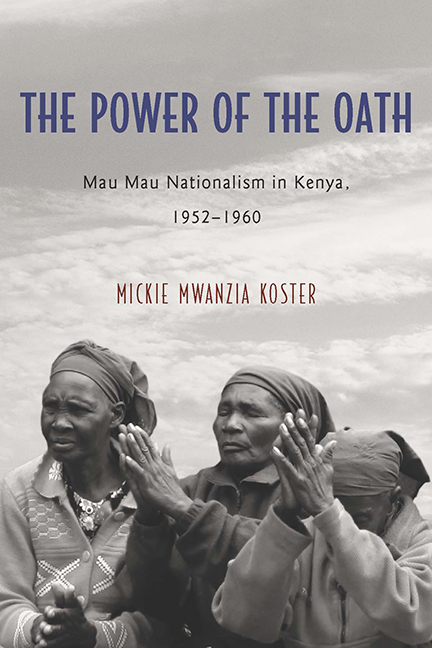Summary
Oath rituals historically have played a role in Kenyan society. They have been used to harness the power of the spoken word for groups and individuals seeking justice. The oath was the most powerful spirit in the world of spirits. This book deals with oaths that involved a large social group, in this case, those who joined the Mau Mau in search of justice. During the Mau Mau war from 1952 to 1960, oaths were taken to pledge allegiance to African land and to fight for freedom from the British colonizers. The oaths during this time period represent a break in oath traditions and taboos, revealing much about the intersectionality of cultural change and continuity during political and social moments. In addition, the study raises important questions regarding nationalism and ethnicity. In this regard, this research goes beyond the mainstream conceptualization of the Mau Mau as a Kikuyu war. Though this work highlights the role of ethnicity, the larger story to tell is that of “the power of the oath.” With this in mind, the book uniquely treats the Mau Mau history by focusing on oathing as dynamic rituals that respond to political, social, economic, and cultural situations. The Mau Mau represented a moment that abruptly altered the systems of oathing in Kenya. This approach shifts the dialogue from the controversy that historically occurred between the British and Kenyans to the contextualized activity of the oath, while also analyzing, for the first time, the ease with which Mau Mau spread to non-Kikuyu communities like the Kamba.
During my early research, I focused mostly on the social, and, in this case, the large oathing activity of the Mau Mau movement to understand and map out the spiritual dimensions of oaths as a resource for initiation into the anticolonial movement, from a combination of sources, including oral sources primarily from Ukambani. This research began in late 2008 with fieldwork examining the oathing activities of Mau Mau veterans, using interviews and survey questionnaires. It also aimed to explore broader ritual questions for context. I collected data in Nairobi, Machakos, Kitui, and Makueni.
- Type
- Chapter
- Information
- The Power of the OathMau Mau Nationalism in Kenya, 1952–1960, pp. xi - xivPublisher: Boydell & BrewerPrint publication year: 2016

